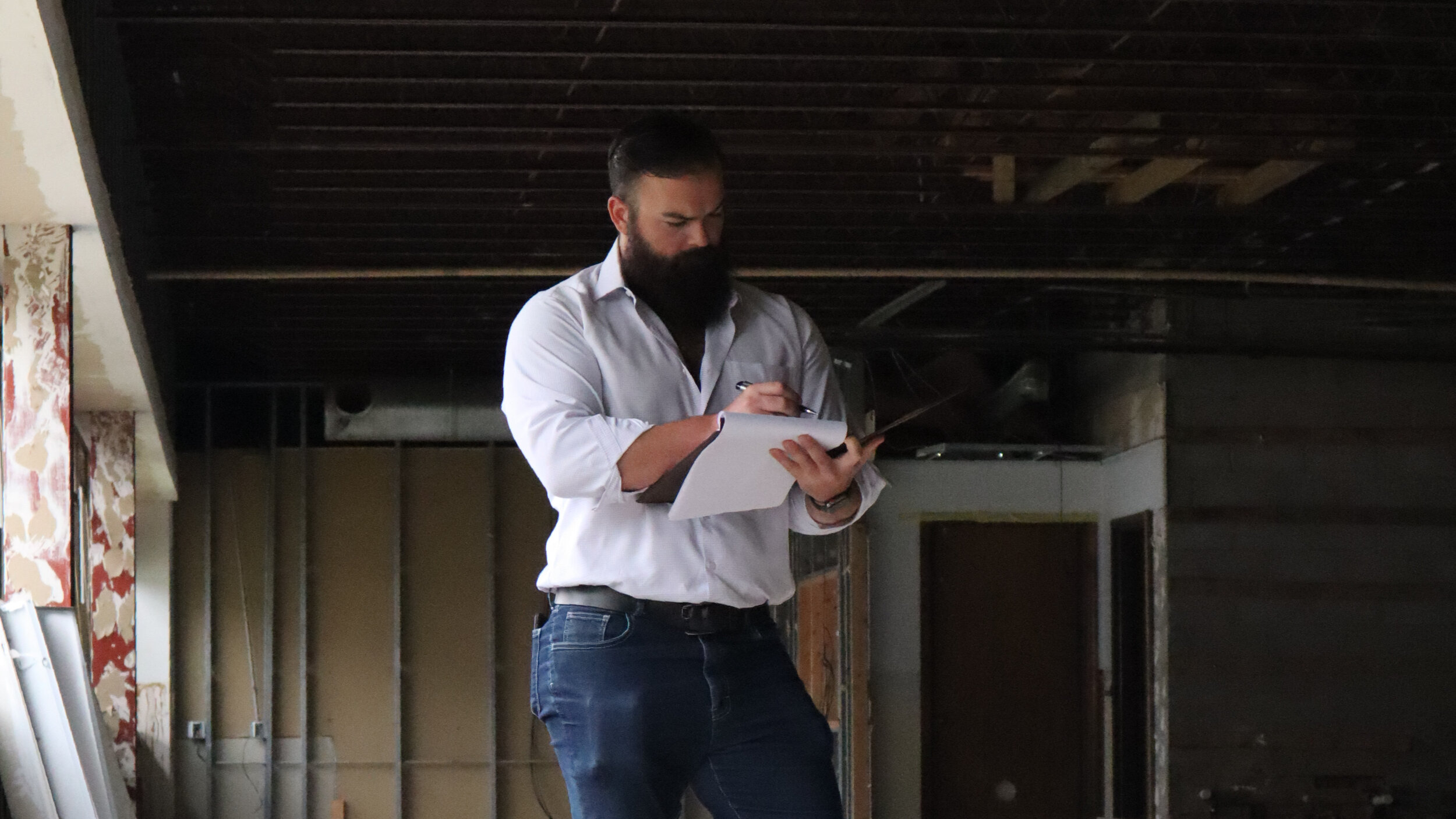The Guide to Wholesaling Commercial Real Estate
While commercial and residential real estate are vastly different in many respects, there are investment strategies that carry from one to the other.
One of those strategies that translates well is wholesaling.
Yes - you can actually wholesale commercial properties, but the process and details are a bit different.
Here’s our guide to wholesaling commercial real estate.
What Is Wholesaling?
Wholesaling is a real estate investment strategy where the wholesaler finds commercial properties in distress, places the property under contract, and flips that contract for a profit to another investor or end-user.
So, the wholesaler doesn’t actually buy the property or invest any of their capital into the project, outside of the earnest money required in the contract.
And even that can be negotiated out, sometimes!
To break it down in simple terms: wholesalers are middlemen for real estate investments, connecting buyers with sellers and taking a fee.
The Benefits of Wholesaling Commercial Real Estate
Wholesaling has some pretty compelling benefits for anyone looking to get into the game.
Here are a few of the biggest benefits:
1. Less Money Out of Your Pocket
As the wholesaler, you really don’t have to come out of pocket much compared to if you were actually buying the property.
Of course you’ll have to pay to generate the leads, which we’ll cover here in a minute.
You will also need to pay for the earnest money deposit, if there is one, and any due diligence that you feel will help you sell the property easier (such as surveys, marketing materials, title searches, and so forth).
But other than that? You have very little responsibility!
2. Higher Profit Potential
Wholesalers don’t play in the world of commissions - they create their own markups on properties.
If a seller is willing to take $100,000 for their property but it’s worth $140,000 on the market, a wholesaler may pitch this site to their investors for $125,000. The end-buyer saves money by the project not going to market, so they’re motivated to move quickly, and the wholesaler gets a $25,000 gross profit.
Real estate agents, who get paid based off commissions, might only see $3,000 to $6,000 in gross profit, so a wholesaler could make up to 8x as much.
It’s not uncommon on larger commercial deals for a wholesaler to have a six-figure markup, either.
3. Fewer Competitors
Wholesaling commercial real estate isn’t a very common practice.
Now, there are certainly some reasons to that, which we’ll get into next, but with fewer competitors comes a wide open, blue ocean for you if you’re willing to dive on in.
There are a ton of commercial real estate brokers - in fact, it can be an incredibly competitive industry to find a job since the market just can’t sustain too many of them.
And, there are plenty of investment groups out there looking for their next deal, so they often bid each other up to pay higher prices.
As a wholesaler, you don’t have to worry about competing against the big boys at all - you’re really working with them.
The Drawbacks of Wholesaling Commercial Real Estate
While wholesaling has some wonderful benefits, it also has it’s drawbacks.
Here are some of the potential cons of wholesaling:
1. Sourcing Sellers Can Be Difficult
Commercial real estate owners, far more than residential, are often hidden behind entities with P.O. box addresses or are gated by an attorney, which makes it difficult to find out who the true owner is.
You can’t just pick up the white pages, look up the owners name, and start calling them.
I’ve found direct mail to be one of the most effective means of sourcing these opportunities, but even that doesn’t quite get the response that residential will.
Most investors in the world of commercial real estate are far more sophisticated, so you’ll have to figure out how to find them and really craft your pitch as to why they should work with you on this deal.
2. Sourcing Buyers Can Be Difficult
When you’re wholesaling commercial real estate, you’ve got to get a longer timeline under contract, which most sellers won’t want to do.
But without this longer timeline, you’re going to face extreme difficulty finding a buyer that is willing to take on the project.
Think about it - most commercial deals usually need around 45 to 60 days of due diligence and 30 days to close. Development has even longer timelines.
That’s because there is so much that needs to be done in order to determine whether the project is even viable - there’s a reason my due diligence checklist is two fully filled up pages!
The deal either needs to be teed up already or you need to go through that due diligence process on behalf of your future buyer while trying to source them.
3. Wholesaling Can Be Questionable
The majority of wholesalers are above-board.
There are a few, however, who have helped garner the practice quite a negative reputation.
Since wholesalers aren’t required to have a license, they aren’t governed by a real estate commission or any governing body, so the unethical wholesalers won’t usually face consequences.
Which means a number of unethical practices take place.
It’s important to be as transparent as possible when wholesaling commercial real estate so that all parties know what is going on and don’t feel like they’ve been left in the dark or taken advantage of.
You just don’t want that reputation.
How to Wholesale Commercial Real Estate
1. Generate Leads
Lead generation is the name of the game when it comes to wholesaling.
You need to have a funnel so strong that you’re constantly turning up opportunities so that you can figure out which ones have the best margins or are the best opportunity so that you can have a successful transaction.
Here are a few ways to generate leads:
Direct mail campaigns to the registered address of the owners
Networking with investors at real estate meetings
Digging through tax records to find any distressed properties
2. Inspect the Property
If you’ve done enough deals, then you likely know what to look for when physically inspecting a property. If not, it would be prudent to bring in a professional inspector to put together an inspection report. Then you could add this do your due diligence package for potential buyers.
You’ll also want to take a cursory glance at any other aspects of the due diligence process to make sure there aren’t any glaring issues.
The more work that you can do on the front end, the easier it will be to flip the contract to a potential buyer since they’ll know exactly what they’re walking into.
3. Do a Comparable Property Analysis
Just as any real estate professional should do when looking at a project, run comps to see how the site compares to similar properties.
If adding your markup to the seller’s asking price brings the project to market or above-market rates, there’s no chance you’re going to be able to flip the deal, so you shouldn’t waste your time.
I’ve seen far too many deals from wholesalers that are marked up to market, which makes the deal unattractive for investors.
4. Negotiate A Contract with The Seller
Time to negotiate the contract with the seller and hopefully get some favorable terms.
Aside from the purchase price, you’ll certainly want a longer due diligence / closing period so that you have enough time to perform your due diligence and find a buyer, who will also need time to perform their due diligence.
It also wouldn’t hurt to have some extensions in the contract just in case you find yourself needing a little extra time before closing.
I almost always bring my attorneys in to handle this portion of the deal since they’re making sure I’m legally covered.
5. Market Your Property to Potential Buyers
Now that you have a due diligence packet on the property put together, combine that with some solid marketing materials and send it out to potential buyers.
We’re always growing our email list with new investors and sending out email blasts with investment properties. Then, I’ll follow up with those investors by phone or with another personalized email to see what their thoughts are.
You could also join local real estate investment meetups or post on the BiggerPockets forums to find any potential buyers.
There are many ways to source them if you’re willing to get creative and work for it.
6. Assign the Contract
Once you’ve found the buyer, it’s time to assign them the contract.
The best case scenario is to have the buyer pay your fee in exchange for your assigning the contract to them.
Many buyers, however, will prefer to have you paid at closing just in case the deal falls through.
Unless you’re well-practiced on drafting legal agreements, I would recommend bringing your attorney in for this one, too, since even a word can change the meaning of a sentence.
Why Sellers Would Agree to Wholesaling
You may be thinking to yourself:
Why wouldn’t a seller just take their property to market on their own?
Well, there are many reasons that a seller would agree to allowing you to wholesale their property.
The property could be in distress and in need of significant repairs, which would make it difficult to sell on the retail market. Wholesalers have investor contacts that are looking for just those types of investments, so they could be a good solution.
The ownership could also be in distress. Maybe they haven’t paid taxes in years or have gotten behind on mortgage payments. Maybe they just need the money fast to buy something else. Wholesaling is a good solution there, too.
Where wholesalers enter a grey area or even cross the line is when they are dealing with unsophisticated sellers who may not know the true value of their property.
Be honest with them and tell them what their property would be worth on the retail market if it was fixed up, what it’s worth in the condition or situation that it’s in now, and the price you’ll need to get it at to make the project make sense.
Mistakes to Avoid When Wholesaling Commercial Property
Here are a few all-too-common mistakes I see when someone is wholesaling commercial property:
1. Not Performing Due Diligence
Someone is going to have to figure out all of the potential issues on the property, so it might as well be you.
If you don’t know what you’re getting into, the buyer may find that out during the due diligence process and could terminate the contract with you, leaving you high and dry.
It’s better to attack this on the front end.
2. Marking Up The Property Too Much
Don’t get greedy here - the margins on wholesaling can already be pretty hefty.
I’ve seen too many wholesalers get greedy with the amount they want on their property and they almost never find a buyer (at least at that price).
In fact, I recently had a wholesaler reach out to me about a site they had under control. The address sounded familiar, so I looked it up - it was a property we had contacted through a direct mail campaign.
The site didn’t make sense to me at the price the owner wanted and the wholesaler had DOUBLED the asking price when they took it to market.
Needless to say, they haven’t found a buyer.
3. Getting Lazy After Assigning The Contract
Unless you’ve gotten paid and are completely out of the deal, you haven’t closed it out yet.
You’re still on the hook for making sure the deal goes through if you want to be reimbursed for all of your out of pocket expenses and see a profit.
Stay on top of the new buyer and make sure you’re doing everything you can to ensure they close on the deal.
So, Should You Wholesale Commercial Deals?
Well, now that you know the pros and cons of wholesaling and how to do it, should you become a wholesaler?
I think there are certainly a number of benefits to wholesaling - you can learn how to invest in properties while making money, you have a lower amount of risk on your end, and you can make some pretty decent margins.
But many professionals in the commercial real estate industry don’t really take wholesalers seriously. The reputation of the profession as a whole has been damaged by a few rotten apples who have taken advantage of far too many people.
Wholesaling commercial property can be an incredibly lucrative venture and you could certainly carve yourself out quite a niche, but be sure to always be honest and upfront with all parties involved so that you maintain a positive reputation.
About The Author:
Tyler Cauble, Founder & President of The Cauble Group, is a commercial real estate broker and investor based in East Nashville. He’s the best selling author of Open for Business: The Insider’s Guide to Leasing Commercial Real Estate and has focused his career on serving commercial real estate investors as a board member for the Real Estate Investors of Nashville.



















In 2008, the city of Chicago sold off the rights to 36,000 parking meters for $1.15 billion. At the time, officials praised it as a financial lifeline—a way to plug a massive budget deficit without raising property taxes. But by 2025, the investors behind that deal had already earned back every dollar… plus $500 million in profit. And the kicker? They still had 60 years left on the contract.
Chicago didn’t just lose out—it got absolutely fleeced.
This wasn’t a one-off oversight. It was a glaring case of what happens when institutional leaders misunderstand the quiet power of boring real estate. Because what looked like an outdated relic—coin-operated meters on slabs of city asphalt—turned out to be one of the most lucrative investments in modern American history.
But this story isn’t really about Chicago. It’s about the invisible empire that grew underneath America’s cities—parking lots, storage yards, fenced land—and the people who saw their value long before Wall Street did.
The investors who win in commercial real estate aren’t always the ones chasing the flashiest properties. They’re often the ones who ask the simplest question: “Can I charge rent on that?”
This is the story of how surplus land and painted asphalt built billion-dollar fortunes—and how the exact same principle is quietly shaping the next wave of wealth in commercial real estate.